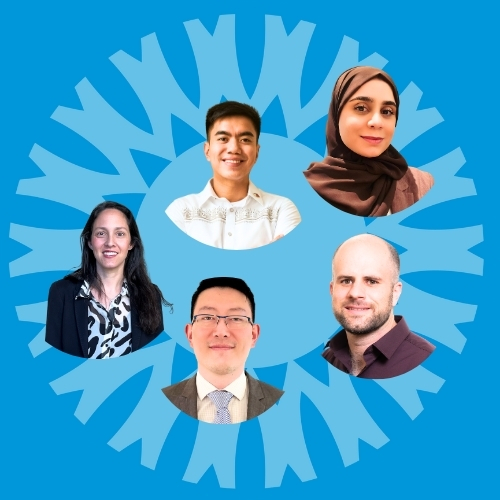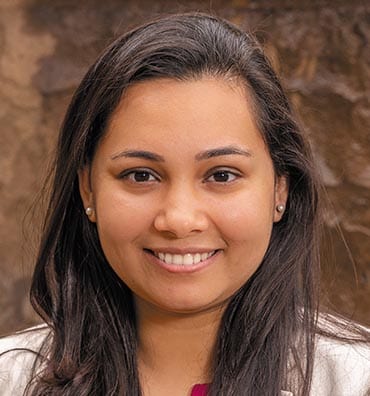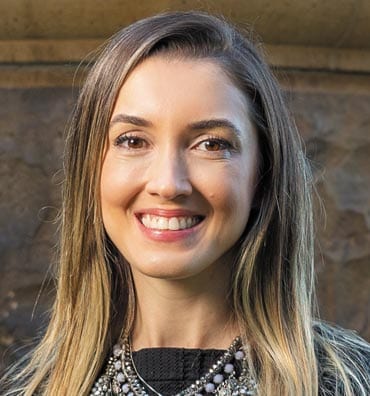About Fellowships
Fellows are selected competitively and come to Sydney Eye Hospital to interact and learn from leading surgeons and clinicians.
12-month Sydney Eye Hospital Fellowships are fully funded by donations to the Sydney Eye Hospital Foundation, making them honorary positions.
The Fellowships are subject to availability of placements within the Sydney Eye Hospital. Approval of funding for a specific Fellowship by the Foundation does not necessarily mean that a placement will be available. Placements are determined by the Clinical Services Director in the following specialty areas.
Current Opportunities
The current opportunities are for:
1. Honorary Ophthalmic Trauma Fellowship
2. Honorary Ocular Oncology & Oculoplastic Surgery Fellowship (to be open soon)
Fellowship period: February 2026 to February 2027. Applications close 3 November 2025.
Honorary Ophthalmic Trauma Fellowship | Feb 2026 to Feb 2027
Applying for Fellowships
The Fellowships are subject to availability of placements within the Sydney Eye Hospital. Approval of funding for a specific Fellowship by the Foundation does not necessarily mean that a placement will be available. Placements are determined by the Clinical Services Director.
Visit our ‘How to Apply’ page for more information regarding the application proces.
“I would like to thank Sydney Eye Hospital Foundation for their generous support of this clinical Fellowship and the opportunity to gain such phenomenal experience in this one-year time span, working alongside a dynamic and enthusiastic consultant team.”
- 2020 Honorary Glaucoma Fellow, Dr Puspha Raman
Fellowship FAQs
Am I eligible?
Applicants need to be a fully qualified ophthalmologist in their country.
Applicants also need to provide certified copies of the following:
Demonstration of English language proficiency in accordance with the guidelines established by the Australian Health Practitioner Regulation Agency (AHPRA) https://www.ahpra.gov.au/Registration/Registration-Standards/English-language-skills.aspx
OR
Adequate evidence of exemption from the English test requirement due to secondary/high school and/or medical education was undertaken in English in Australia, Canada, New Zealand, Ireland, South Africa, USA or the UK.
- Undergraduate Medical Degree
- Experience in postgraduate teaching to Registrars and Residents
How do I apply?
NOTE: Applications can be adversely impacted by the lack of required information provided with the application. Prior to completing the application form, applicants are strongly encouraged to:
- Assess their eligibility carefully. It is strongly advised that candidates complete an internship or comparable in the country of graduation before you apply for registration in Australia.
- Applicants are required to provide details of successful completion of a medical internship or comparable.
- Ensure all relevant documents will be certified correctly in accordance with the Australian Health Practitioner Regulation Agency (AHPRA). A guide to certifying documents is available on the AHPRA website.
How do I ensure my documents will be certified correctly?
You will be required to provide certified copies of original documents in support of an application for registration, endorsement or for other purposes required by the National Law.
A certified copy of an original document is a copy that has been verified as being a true copy of an original document. This is done by a person who is authorised to certify copies of original documents.
Please refer to the AHPRA website for instructions on certifying documents as well as a list of authorised officers who can certify your documents inside (usually a Justice of the Peace) and outside (usually a Notary Public) of Australia. Please be advised that per AHPRA’s current policy, if you arrive in Australia before your medical registration is finalised, you will need to re-certify your documents in Australia and upload them to the AHPRA portal.
I am not an Australian citizen, what visa do I need?
If you are successful in being awarded a Fellowship at Sydney Eye Hospital, the hospital will sponsor your application for the training visa subclass 407. Once this has been approved, Sydney Eye Hospital will provide you with a nomination letter which will allow you to apply for a training visa (407). To avoid unnecessary delays, please refer to www.homeaffairs.gov.au and familiarise yourself with the requirements for your visa application.
How do I ensure my medical credentials are verified so I can practice medicine in Australia?
The Educational Commission for Foreign Medical Graduates (ECFMG) partners with the Australian Medical Council (AMC) to primary source verify the medical credentials of International Medical Graduates (IMGs) applying for registration to practice medicine in Australia.
For successful Fellows, this is a very important process that can take up to 8 weeks to finalise. Therefore, it is imperative to initiate this verification as soon as possible. Please familiarise yourself with the process on the ECFMG website.
Before Sydney Eye Hospital can proceed with lodging a specialist assessment with the Royal Australian and New Zealand College of Ophthalmologists (RANZCO), successful Fellows must have their qualifications (primary and specialist) verified by the Electronic Portfolio of International Credentials (EPIC) services who will contact the overseas educational institutions for this verification.
What is a certificate of good standing and why do I need one?
A certificate of good standing (COGS) is a document that confirms a doctor's registration status and character. It proves that a doctor is compying, or in "good standing", with the country they practice in (in this case, Australia).
Successful Fellows are required to send a COGS directly to the Australian Health Practitioner Regulation Agency (AHPRA) by the respective registraton authority, i.e. overseas medical council. Then, that registration authority needs to email the COGS to COGS@ahpra.gov.au. Please be mindful that COGS are only valid for 3 months and must be valid when the Board makes a decision on a registration application.
Will I need to undergo an international criminal history check?
A Prior to applying for medical registration in Australia, successful Sydney Eye Hospital Fellows who are international medical graduates are required to apply for an international criminal history check (ICHC). Please read the imporant information for international criminal history check applicants before applying for an ICHC. You can only apply for an ICHC from an approved Australian Health Practitioner Regulation Agency (AHPRA) supplier such as AIS International or Fit2Work.
Is this a paid position?
The Fellowships are Honorary Medical Officer appointments of Sydney Eye Hospital. A stipend of $55,000 per annum (taxable) will be paid by the Foundation.
The Foundation will additionally assist the fellow with up to $1,000 for certain registration costs that are imposed by The Department of Home Affairs, RANZCO, and Service NSW. Appointed fellows will be provided with more information regarding possible reimbursements.
Do you offer Observerships?
No, at this time Sydney Eye Hospital Foundation does not have an Observership Program.
Meet our current and past Fellows

Meet our 2025 Mid-Year Ophthalmology Fellows

Meet our 2025 Ophthalmology Fellows

Meet our new Fellows for 2024

Meet the 2024 Fellows

Meet the SEHF 2023 Fellows

Meet the 2022 Fellows

Meet the July 2021 Fellows

Meet the January 2021 Foundation Fellows

Meet the 2020 Foundation Fellows

Meet the 2019 Foundation Fellows

Meet the 2018 Foundation Fellows




